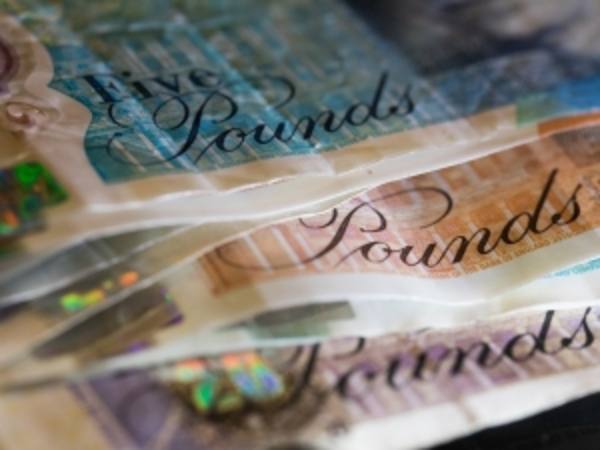If you're lucky enough to have a final-salary or defined-benefit (DB) pension, the annual value of the retirement income it pays you will be based on a percentage of your salary multiplied by your years of service at the employer providing it. Almost nothing can change this entitlement, meaning a DB pension is a very valuable benefit. And although there are some instances where it could be beneficial to transfer out of one of these, you shouldn't do this without careful consideration and professional advice.
A DB pension fund takes on the risk of investing on your behalf. Because the pension is essentially a promise it is hard to envisage what it might be worth in terms of a pot of money, but it can be significant, depending on how long you worked at the company providing it.
The value of DB pensions was highlighted after the government introduced wider pension freedoms in 2015, which made it easier to convert them into a pot of money to use as you wish. Since then a large number of investors have opted to transfer out of DB schemes, and move into cash or self-invested personal pensions (Sipps). But the financial services regulator, the Financial Conduct Authority (FCA), is concerned that many DB pension investors have been given bad advice or are acting recklessly, as giving up a guaranteed income for life and converting it into a pot of money can often be a bad idea.
These concerns have been exacerbated by the growing number of scams and fraudsters who have convinced DB investors to transfer their pension into high-fee products and risky investments.
If your DB pension pot is valued at more than £30,000 you are legally required to get professional financial advice before you transfer it out. FCA rules that came into force earlier this month have increased the amount of work advisers have to do to ensure they understand what impact transferring out of a DB pension would have on someone’s retirement and financial circumstances. Advisers must also have the necessary qualifications to be able to design an investment plan for a pot of money transferred out, to ensure that doing this will mean the investor is better off over the long term.
But since the FCA announced it would be introducing rules and greater penalties if an adviser moves someone out of a DB scheme when it is not appropriate, there has been a substantial decrease in the number of advisers who will advise on doing this. This has made it harder for investors to get advice on moving out of their DB scheme. But the tighter rules on advising on transfers also mean that the advice you get on this is likely to be more tailored and appropriate to your needs, and ensure you are steered in the right direction if you are unsure about whether DB benefits are worth giving up.
If you are thinking of transferring out of your DB scheme you should consider the following first.
Don’t look at valuations
A lot of the demand for transfers out of DB pensions comes from investors who have asked for a valuation of their DB pension. Many did not realise how much their entitlement was worth, and the eye-watering figures and the ability to access this money from age 55 has led to a surge in transfer-out requests.
But asking your scheme for a valuation of your pension should not be the first step, argues Alistair Cunningham, director at Wingate Financial Planning. The decision to give up a DB pension should be based on whether it is right for your personal and financial circumstances, rather than on what the value of the pension is. Asking for a valuation of your DB pension also triggers a three-month period during which you have to transfer out. If you do not, you lose the right to ask for another valuation for 12 months.
“Your first step should be to speak to advisers, and get an idea about your objectives and whether giving up the DB pension is going to work for you,” says Mr Cunningham. He says finding a good adviser early on is even more important now that fewer of them work on transfers out of DB schemes.
“People don’t make good decisions when they have a ticking clock," says Mr Cunningham. "And if you miss the three-month deadline, you will be be disappointed if the transfer value falls after this.”
Jeremy Askew, managing director of Town Close Financial Planning, says those considering transferring out of their DB scheme should start by figuring out their retirement plans. If you need a significant one-off sum you should first consider if you can draw this from assets other than your DB scheme. If you don't have the money, then you could consider transferring out of your DB scheme.
“Financial transactions should be made in the context of what you are trying to achieve overall," says Mr Askew. "You need as clear as possible an idea of where you want to end up before doing anything.”
Work out whether it’s right for you
Mr Cunningham says many of the potential clients he meets asking for DB transfers want to forgo their DB scheme so they can self-manage their investments. But they often forget the first rule of financial planning – to consider their finances as a whole.
A DB pension is often described by Investors Chronicle economist Chris Dillow as like having a large holding in government bonds because of the protection it provides to a portfolio – a guaranteed income and an investment that cannot fall in value.
Mr Cunningham adds: “If you leave your DB pension where it is, you can afford to take more risk with your other assets. Whereas if you put all your eggs in one basket, for example in a Sipp, you should be taking less risk as you cannot afford for that to go wrong.”
Some investors incorrectly base future expectations on past performance. “Expected investment returns are a key part of comparing what a final-salary DB scheme would give you compared with what you could do yourself. A lot of people I have conversations with think they can make a return of 8 per cent a year, but this may not happen in the future. In a thoroughly benign market investment asset classes like global equities seem lower risk than they probably are.”
Some DB pension holders want to transfer out of their scheme sooner rather than later to take control of their investments. However, once you have done this it is irrevocable. So you should not transfer out until the latest possible moment – under current regulations you can transfer out of a DB pension up to 12 months before your scheme’s retirement age.
“If you are under 55, one of the main questions to ask yourself is why you want to transfer now," adds Mr Cunningham. "If you are unsure, wait."
Find the right adviser
If you are considering transferring out of your DB pension scheme it is important to find the right adviser for the right price and charging model.
Advisers charge for work on DB pension transfers in one of two ways. Some charge a flat fee to compile a detailed and tailored report on whether a transfer is suitable for you. But others provide this report for free and if a transfer is undertaken charge a percentage of its value, something known as contingent charging.
There is a conflict of interest with contingent charging in that the adviser is incentivised to recommend a transfer even if it is not totally suitable for the client, as otherwise they wouldn't get a fee. The FCA has continued to allow contingent charging on the basis that it enables investors who can't afford the one-off fee, which can be high, to get advice. But Mr Askew argues: “You should be prepared to pay for proper advice or what you will receive is likely to be biased. When a DB transfer is involved this is absolutely crucial.”
But Mr Cunningham says that investors who want to transfer out of a DB pension tend to fall into one of two categories. Some are unsure about what to do and want advice on what would result in the best outcome. But others have already decided to transfer and and are only taking advice to meet the legal requirement.
“If you’re in the first category you want a chartered financial planner who is a pension transfer specialist and will act in your best interests, so one who charges a one-off fee for the transfer advice," says Mr Cunningham. "Contingent charging is inappropriate as with this model the report is just a sales aid that the adviser hopes will result in a product sale. But if you’re in the second category you could use contingent charging to your advantage." It is worth bearing in mind that if you have a large pot and are set on transferring, contingent charging could end up more expensive than a one-off fee so do the comparison.
When looking for an adviser to help with a transfer out of a DB scheme speak to them and see how you feel about them. If this is positive, find out how they get paid. If they are incentivised to sell something, walk away. If they will commit to designing a strategy tailored for your needs then continue but never pay up front – this should always be done on completion.











